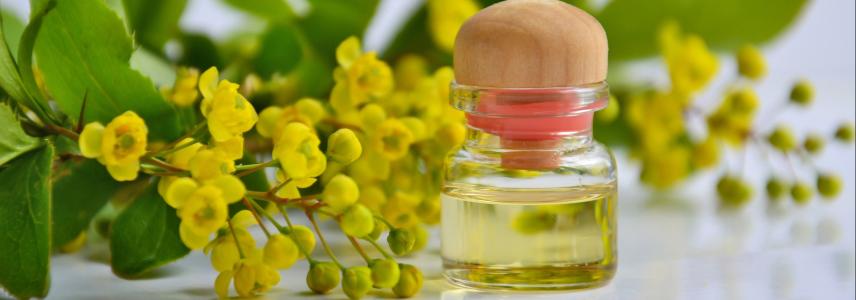Growing opportunities for vegetable oils in cosmetics

The demand for natural ingredients in cosmetics and social supply chains is growing. Because of this, European cosmetic brands use more vegetable oils in their products. But new oil availability and resources are a challenge for suppliers.
Vegetable oils in cosmetics
Cosmetic brands often search for new vegetable oils. Adding plant-based oils to products is an easy way to make them more natural and stand out in the market. Because of this, vegetable oils and butter are becoming popular ingredients at cosmetics trade fairs. At the in-cosmetics 2022 trade fair in Paris, oils and butter were the fourth most-popular ingredient among brands and buyers.
Demand for natural ingredients and sustainable supplies
Brands use more vegetable oils in cosmetics as they are safe and offer skin and hair care benefits. But next to the demand for more natural products, consumers also want cosmetic ingredients that follow high social and environmental responsibility standards. So, suppliers are sourcing sustainably-produced oils that contribute to community development and improve the lives of community members. For example, companies have used sesame seed oil in cosmetics for a long time. To meet consumer demand, the sesame seed oil in cosmetics is now often Fairtrade certified and sourced from community-based organisations, such as Fairoils in Uganda and Olvea's in Burkina Faso.
Innovation in vegetable oils
Vegetable oils do not have to be REACH registered. And they can enormously benefit communities, the value chain and the cosmetics industry. Because of these benefits, the cosmetics industry welcomes innovations. These may include the following:
- vegetable oils new to the cosmetics industry;
- a way of sourcing vegetable oils involving a new supply chain;
- increasing the availability of new vegetable oils.
Cosmetic brands often show interest in new vegetable oils for their products. Still, availability is challenging for suppliers due to wild harvesting. Wild harvesting means only harvesting plants that grow naturally in an area. It could be that only a few trees are in an area to source the fruits and nuts needed. Scarcity can cause problems if an international buyer expects a certain amount of oil annually. And that is why suppliers need to find ways to increase availability.
Challenges in oil supply
Finding reliable supplies of new oils for mainstream products can be challenging. For example:
- Cacay oil, Kalahari melon seed oil, prickly pear oil, sacha inchi oil and hog plum (ximenia americana) oil have great cosmetic properties. They also offer benefits for the local community. But quantities are low and unreliable;
- Argan oil, baobab oil and marula oil now have more sustainable supplies. But wild harvesting enough nuts and seeds is a challenge.
But, Shea butter and Brazil nut oil are wild-harvested vegetable oils, yet these are available in large quantities.
Learn more
Would you like to learn more about exporting vegetable oils and butter to Europe? Read the CBI studies on:
Fair Venture Consulting wrote this article for CBI.
Stay informed
To stay informed on the latest developments in the natural ingredients for cosmetics sector, subscribe to our newsletter.